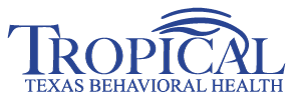The Adult Mental Health Services Division provides an array of services to adults 18 years of age and older who are suffering from severe depression, schizophrenia, bipolar disorders or any other serious emotional symptoms that interfere with their daily activities. Treatment is individually designed to meet the specific needs of each consumer while promoting independence.
Payment for Services - TTBH accepts many insurance plans including Medicaid and MediCare. Many services are available on a sliding fee scale, and TTBH will not refuse services to a person based on their inability to pay.
A copy of the sliding fee scale is here: Sliding Fee Scale – Mental Health and IDD Services
Please contact us for more information about payment assistance or insurance coverage.
Assertive Community Treatment (ACT) - Utilizing an integrated team service approach, the ACT team merges clinical and rehabilitative services for individuals with severe and persistent mental illness in an effort to keep them from hospitalization.
Case Management - Case managers help consumers and families identify needs, assist in resolving problems, negotiating services and linking with other available resources.
Counseling Services - Group and individual counseling provides problem resolution, stress management, coping strategies and progress maintenance including emergency services.
Crisis Hotline - 24-hour help is available by calling 877-289-7199. Collect calls are accepted. Screenings are provided as needed to include determination of need for face to face crisis assessment or emergency intervention.
Crisis Intervention - Counseling sessions are provided as needed, on a scheduled or walk-in basis, to ensure appropriate resolution to crisis situations, to prevent negative after-effects and to reduce the possibility of hospitalization.
Crisis Respite - Crisis respite services provide individuals with a safe and closely monitored residential setting while they work through a crisis.
Family Support - Family Support Services focus on family needs as they relate to the consumer. All family members need support as they live with and care for a family member with a disability. Family Support Services helps families help themselves. This support and advocacy network of families and professionals includes family education classes and support groups.
Intake & Assessment - Comprehensive assessments and evaluations are provided by clinical staff on both an emergency and scheduled basis. Staff also perform eligibility determination, authorization and assignment for needed services.
Medication-Related Services - Individuals are given an initial psychiatric evaluation and follow-up to determine diagnosis, treatment and progress. Progress monitoring, consumer education and laboratory services are also provided. Physicians see consumers on a regular basis throughout their treatment. Progress is monitored to help in controlling and reducing symptoms.
Outreach Services - Efforts are made to "find" the consumer who often has difficulty seeking the appropriate care needed. These services are provided through co-location with other community agencies, services and facilities.
Pharmacy Services - The Center offers pharmacy services to eligible consumers for the purpose of providing them with the highest quality medication at the most economical cost. Services are provided in conjunction with the respective treatment goals as prescribed by Center physicians only.
Respite Services - Arrangement of supports, either temporary, short-term or periodic is coordinated to provide relief to the primary caregiver.
Skills-Training Services (MH) - Structured therapeutic activities offer intensive support and treatment needed to encourage growth and independence. The program provides group interaction, living and community skills, recreational group activities, stress management and socialization experiences.
Supported Employment & Placement Services - Individuals receive structured training and job readiness
Supportive Housing Services Program - promotes regular integrated housing options in the community. Through skills training, community linkage and referrals, TTBH staff assist individuals in obtaining, maintaining and retaining regular integrated housing that is safe, affordable, accessible and chosen by the individual.
Telemedicine/Telehealth Services - TTBH utilizes telemedicine and telehealth services to supplement on-site clinical care and to improve access to care. The same standards of care and protocols will be observed in the delivery of care via telemedicine and telehealth as are observed in the assessment and treatment of clients on-site. An explanation of telemedicine/telehealth services, equipment and any security, privacy or safety considerations will be provided and the client will be asked to sign a consent to telemedicine/telehealth services prior to use. Clients who are not comfortable using telemedicine/telehealth services will be scheduled with a face to face provider at their request. Telemedicine and telehealth services are offered during the same hours of operation as TTBH’s other services.
Mental Health First Aid (MHFA) is a public education program that introduces participants to risk factors and warning signs of mental health problems, builds understanding of their impact and overviews appropriate supports. This 8-hour course uses role-playing and simulations to demonstrate how to offer initial help in a mental health crisis and connect people to the appropriate professional, peer, social and self-help care.

